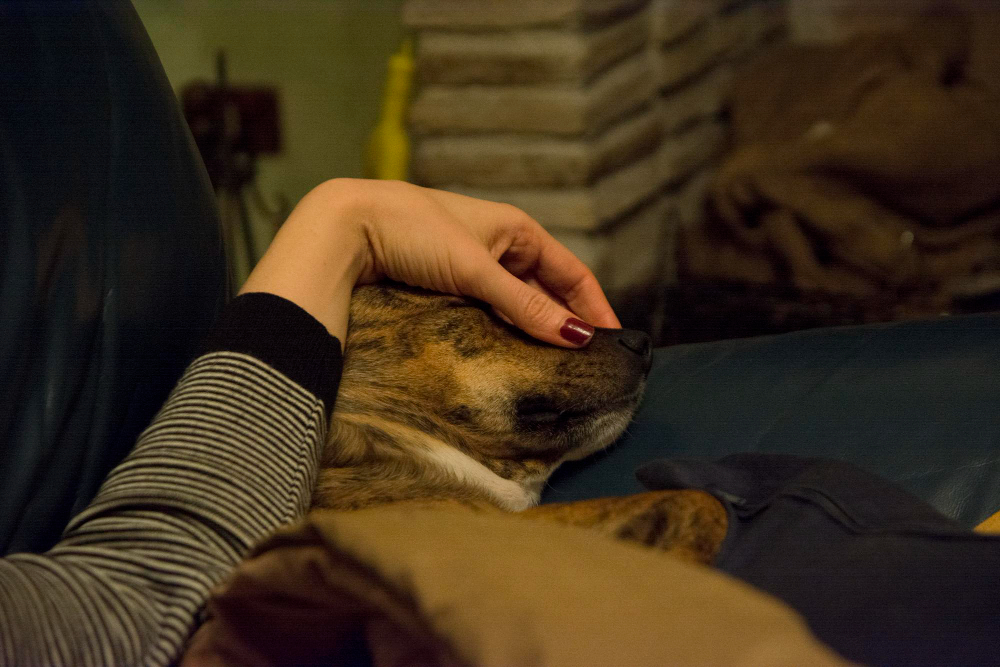Saying Goodbye: In-Home Euthanasia for Senior and Ill Pets

Saying Goodbye: In-Home Euthanasia for Senior and Ill Pets

Making the decision to say goodbye to a beloved pet is one of the most difficult choices a pet owner will ever face. When a pet's quality of life declines due to old age or a terminal illness, euthanasia offers a peaceful and humane end to their suffering. Opting for in-home euthanasia allows this final moment to happen in a familiar, comfortable, and private setting.
This process, while always emotional, can present different considerations depending on whether your pet is a senior experiencing gradual decline or is facing a specific terminal diagnosis. Understanding these differences can help you prepare for this difficult but compassionate final act of love.
This guide will explore the nuances of in-home euthanasia for both senior pets and those with terminal illnesses, helping you navigate this emotional journey with clarity and confidence. If you are in Jupiter, FL, and considering this option, we hope to provide the information you need to make the best decision for your cherished companion.
Understanding In-Home Euthanasia
Before exploring the specific scenarios, it's important to understand what in-home euthanasia involves. Instead of taking your pet to a veterinary clinic, a veterinarian comes to your home. This eliminates the stress of travel for a pet that is already weak or anxious. The procedure is performed in a space where your pet feels most secure, whether that's their favorite bed, a sunny spot on the porch, or in your arms.
The process is designed to be calm and peaceful. The veterinarian will typically administer a sedative first, allowing your pet to drift into a deep, comfortable sleep. Once your pet is fully relaxed and unaware, the final medication is given, which quickly and painlessly stops the heart. The entire process is handled with immense compassion and respect for both the pet and the grieving family.
Euthanasia for Senior Pets: A Gradual Decline
For many senior pets, the end of life is not marked by a sudden illness but by a slow, progressive decline in their quality of life. This can make the decision-making process particularly challenging for pet owners.
When Is It Time?
One of the hardest questions to answer is, "How do I know when it's time?" With senior pets, there often isn't a single, clear sign. Instead, you'll likely observe a series of "bad days" starting to outnumber the "good days." Common indicators include:
- Chronic Pain: Persistent discomfort from arthritis or other age-related conditions that is no longer manageable with medication.
- Loss of Mobility: Difficulty standing, walking, or navigating stairs, leading to a loss of independence.
- Incontinence: Losing control of bladder or bowels, which can be distressing for both the pet and the family.
- Disinterest: A lack of interest in favorite activities like playing, eating, or interacting with the family.
- Cognitive Decline: Confusion, disorientation, or anxiety, often referred to as "sundowning."
Using a quality-of-life scale can be a helpful tool. These scales prompt you to objectively assess factors like your pet's pain level, appetite, hydration, hygiene, mobility, and overall happiness. Regularly consulting with your veterinarian can also provide clarity and support as you monitor your pet's condition.
The Emotional Journey for Owners
The decision to euthanize a senior pet can be filled with guilt and uncertainty. Because the decline is gradual, you might second-guess whether you are making the choice too soon or waiting too long. It is a profound act of compassion to prevent future suffering, even if your pet is still having moments of joy. Many owners find peace in choosing a peaceful end while their pet still has some dignity, rather than waiting for an emergency or a moment of intense suffering.
Euthanasia for Terminally Ill Pets: A Clearer, Though Painful, Path
When a pet receives a terminal diagnosis, such as advanced cancer or organ failure, the timeline is often more defined. While incredibly painful, this clarity can sometimes make the decision-making process more straightforward.
Navigating a Terminal Diagnosis
A terminal diagnosis shifts the focus from curative care to palliative care, which prioritizes comfort and quality of life. Your veterinarian will work with you to manage symptoms and keep your pet as comfortable as possible. However, there will come a point when the illness progresses beyond what palliative care can manage.
Signs that a terminally ill pet's suffering is increasing may include:
- Uncontrollable Pain: Pain that no longer responds to medication.
- Severe Nausea or Vomiting: An inability to keep food or water down.
- Labored Breathing: Difficulty breathing is a sign of significant distress.
- Extreme Weakness: An inability to stand or move without assistance.
With a terminal illness, you and your veterinarian can often anticipate the progression of the disease. This allows you to plan for in-home euthanasia, ensuring you can say goodbye before the suffering becomes acute.
The Emotional Experience
While a diagnosis provides a clearer "why," it doesn't make the "when" any less heartbreaking. The period following a terminal diagnosis can feel like a countdown, with every good moment feeling bittersweet. However, knowing you are acting to prevent the worst stages of an illness can provide a sense of purpose in an otherwise helpless situation. Planning for an in-home euthanasia allows you to take control of your pet’s final moments, ensuring they are filled with love and peace rather than fear and pain in a clinical setting.
The Shared Comfort of In-Home Euthanasia
Whether your pet is a senior or terminally ill, in-home euthanasia in Jupiter, FL, offers a way to honor their life in the most loving way possible.
- For the Pet: The experience is calm and stress-free. They are surrounded by familiar sights, smells, and the people they love most. There is no frightening car ride or cold, sterile clinic environment.
- For the Family: It provides a private, intimate space to grieve. You can hold your pet, include other family members (including other pets), and say your goodbyes without feeling rushed. The veterinarian manages all the practical aspects, allowing you to focus completely on your companion.
How to Prepare for the Appointment
Once you have made the decision, there are a few things you can do to prepare:
- Choose a Location: Decide where you want the procedure to take place. This could be a favorite bed, a spot in the garden, or on the sofa.
- Plan a Special Day: Give your pet a wonderful last day filled with their favorite things, whether it's a special treat, a gentle car ride, or just quiet cuddles.
- Involve Family: Decide who should be present. This is a personal decision, and there is no right or wrong answer.
- Arrange Aftercare: The veterinarian can help with aftercare options, such as cremation services. Deciding on this beforehand can ease the burden on the day of the appointment.
Your Compassionate Partner in Jupiter, FL
The final decision to say goodbye is a selfless gift to a pet who has given you unconditional love. It is a final act of kindness to end their pain and allow them to pass with dignity. While the grief is profound, knowing you provided a peaceful, loving end in the comfort of home can bring immense comfort.
If you are considering in-home euthanasia in Jupiter, FL, and need guidance, support, or more information, please contact Rover Veterinary Care. We are here to help you navigate this difficult time with compassion and care.
